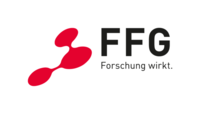Optimization of product design and configuration for an ecodesign-compliant total cost of ownership approach.
Background
Data-driven product configurations play a crucial role in Industry 4.0 architectures. They not only enable more efficient production in compliance with the latest regulations but also enhance product safety and environmental sustainability throughout the entire production cycle. In the same vein, this approach is useful when establishing a circular economy, as it requires the effective integration and management of third-party data on raw materials, product composition, and manufacturing processes. Moreover, the possibilities offered by data-based product configuration can be easily brough into alignment with the goals pursued by the European Union with the introduction of a Digital Product Passport (DPP). The DPP documents product-related information, provides insight into the supply chain and the origin of product components and gives authorities, producers, and consumers access to this data. The EU regards it as a key step towards increasing transparency and building a data basis that supports a sustainable circular economy.
Project Content and Goals
The ECO-TCO project investigates how data from a Digital Product Passport (DPP) can be leveraged to set up circular production processes and achieve ecologically sustainable product configurations. The main goal is to reduce the environmental footprint throughout the entire lifecycle of a product. We approach the topic from the perspective of Total Cost of Ownership (TCO). This enables users to compare and select products based on their Environmental, Social, and Governance (ESG) performance, as well as their compliance with current regulations, laws, and (internal) policies.
Methodology
The consortium assesses the suitability of DPP data for sustainable production. We rely on a particular product line for that. The focus is on:
- Environmentally Friendly Design: Introducing a more efficient power supply to reduce energy loss and CO2 emissions.
- Scalability: Addressing how project results can be transferred to other Siemens product lines and how this can be beneficial to reach both environmental as well as production goals.
- Accurate EPD Metrics: An Environmental Product Declaration (EPD) is a standardized method for providing transparent and objective information about a product's environmental impact over its entire lifecycle. It allows for the assessment of environmental impacts and costs, particularly production, transportation, and maintenance costs, as well as value creation in Europe.
- Automation: Meaningful DPPs help reduce costs and incorporate new data but also make it easier to adapt to changes in regulations.
- Detailed TCO Information: Reliable Total Cost of Ownership data makes it possible to prioritize environmentally friendly production sites and to establish circular economy processes in production and supply chains.
- Optimal Pricing Models: Using the Product Environmental Footprint (PEF) in combination with TCO optimizes pricing models and creates an incentive system for investing in higher-quality products.
Funding
Sie wollen mehr wissen? Fragen Sie nach!
- Siemens
- Höhne in der Maur & Partner Rechtsanwälte

